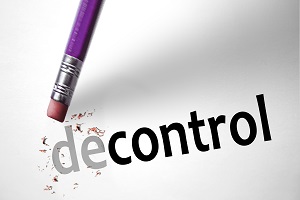Prevent Addiction: 5 Self-Control Tips That Work
Addiction rarely begins as a conscious choice. It often starts with something harmless — a drink after work, a gaming session to unwind, or social shopping online. But when indulgence becomes a habit, the line between pleasure and dependency can blur quickly.
Whether it’s alcohol, nicotine, food, gambling, or even social media, learning to control impulses before they spiral is one of the best ways to stay addiction-free. Here are five science-backed self-control strategies to help you avoid crossing the line.

1. Practise Moderation
Moderation is one of the simplest yet most effective prevention tools. It’s about enjoying activities or substances in controlled, limited amounts — and recognising when to stop.
For those at risk of dependency, gradual moderation can even serve as a stepping stone to abstinence. For example, reducing the number of drinks or cigarettes consumed each week helps the brain adapt to lower levels of stimulation.
Even for everyday activities such as online shopping or streaming shows, setting gentle limits can help maintain balance and protect mental and financial well-being. Something as simple as leaving your credit card at home or setting a budget cap can prevent impulse behaviour.

2. Engage in Healthy Activities
Positive routines are powerful buffers against addiction. Exercise, outdoor hobbies, volunteering, or creative pursuits activate the brain’s natural reward system in healthy ways.
Instead of heading to a bar or club to unwind, try exploring new hiking trails, visiting art exhibits, or organising social activities that don’t revolve around substances. When your social circle revolves around healthier pursuits, the risk of relapse or temptation diminishes naturally.

3. Strengthen Family and Community Bonds
A strong support system is a natural safeguard. Research shows that family and community connectedness reduce the likelihood of addiction. When people feel seen, supported, and loved, they are less likely to seek comfort through harmful behaviours.
If you live alone, consider joining a community group, hobby club, or volunteer organisation. These connections provide emotional support and accountability — key ingredients in self-control and resilience.
Having a trusted friend or family member as a “wellness buddy” also helps. For instance, two smokers trying to quit together can motivate each other and celebrate progress along the way.

4. Educate Yourself Before You Indulge
Before starting any new habit or activity, it’s wise to understand its impact. Ask yourself:
-
Does this activity take time or money away from my personal priorities?
-
Could it conflict with my health or family needs?
-
Are there warning signs that I should watch out for?
Being informed about the risks of addictive behaviours makes it easier to identify early signs — and take action before it’s too late. Awareness is your first line of defence.

5. Seek Help Early
If you sense that a habit is becoming difficult to control, don’t wait. Seeking help early increases your chances of successful intervention and reduces long-term harm.
Early support can come from counselling, medical professionals, or community programmes such as Singapore’s National Addictions Management Service (NAMS). The earlier you reach out, the easier it is to break the cycle before addiction takes hold.
The Bottom Line
Self-control is not about denial — it’s about balance. Occasional indulgence is part of life, but mindfulness and moderation protect your health, finances, and relationships.
When you learn to recognise limits and act before crossing them, you empower yourself to live freely, without dependence. PRIME











